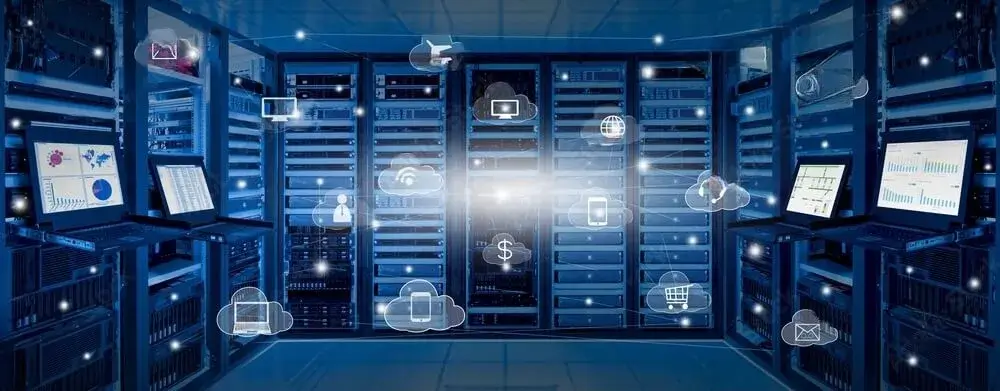Disaster Recovery
- Home
- Disaster Recovery
The fact in the business world is that nothing is certain. At one point, your infrastructure is good, data administration is under control, and critical systems are working as they should – then the next moment disaster strikes. Disaster recovery testing helps to guarantee that businesses can effectively recover from a functional disruption.
Providers such as us, Raksha IT, can deliver the service as a fully organised, assisted recovery or self-service offering. The service should be marketed and sold as a stand-alone, industrialized offering and minimally include- On-demand recovery cloud for planned tests, activities and declarations – Server image and production data replication to the cloud – Automated failover and failback between production and the target cloud environment1 – Recovery time service-level agreements (SLAs).
Providers such as us, Raksha IT, can deliver the service as a fully organised, assisted recovery or self-service offering. The service should be marketed and sold as a stand-alone, industrialized offering and minimally include- On-demand recovery cloud for planned tests, activities and declarations – Server image and production data replication to the cloud – Automated failover and failback between production and the target cloud environment1 – Recovery time service-level agreements (SLAs).

Why is a
Disaster Recovery Plan necessary?
Disaster recovery operations are distinct for each industry, but with the beginning of remote and hybrid working and the fast evolution of technology, organizations globally require a basic set of protocols for the following reasons:
A formal process to deal with possible accidents, disasters, data breaches or outages is required.
Because of the pace at which technology is changing, there is an improved chance that knowledge gaps can lead to bad IT security precautions.
Avoiding the potential failure of a business and the collapse of its IT infrastructure in the face of an unforeseen, catastrophic event.
Everyone wants to reduce the potential costs of dealing with a disaster.
An effective approach to back up and retrieve essential business data is necessary in case of network shutdown.
DRaaS Operating Models
There are three preliminary models used by disaster recovery as a service provider—managed, assisted, and self-service.
Managed DRaaS
In the managed DRaaS model, third parties take full accountability for disaster recovery. Picking this option needs organizations to work closely with DRaaS providers to support all infrastructure, application, and service changes to date. If you don’t have the experience and time to manage your disaster recovery, consulting us is the best option.
Assisted DRaaS
If you want to take accountability for certain factors of your disaster recovery plan, or if you have custom applications that may be hard for a third party to take over, backed DRaaS may be a better choice. In this model, the service provider delivers services and expertise that can help in optimizing the disaster recovery strategy, but the consumer is responsible for executing some or all of the disaster recovery plans.
Self-Service DRaaS
The most affordable option is a self-service DRaaS, where consumers are accountable for planning, testing, and handling disaster recovery, and the vendor provides backup management software, and hosts backups and virtual machines in distant locations. When using this model, detailed planning and testing are needed to confirm that operations can be immediately failed over to the vendor’s remote data centre, and easily regained when local resources are restored. This prospect is ideal for organizations with in-house disaster recovery and cloud computing expertise.

A monitoring and performance management solution must be part of the Disaster Recovery Plan
Every business has some kind of IT service that requires the proper support. Technology can provide a mass of advantages to your business but can also introduce a whole new host of issues. Without IT support services, these issues can do extreme damage and go unaddressed for long periods. Having IT support available, be it a helpdesk or any other implementation, will confirm your organization works as efficiently.
Support services can tackle everything from infrastructure development to network security and should be a portion of any modern organization. Managed support services allow your employees to concentrate on maximizing business consequences and greatly reduce IT service costs. For many organizations, IT support services are cost-efficient, effective, and worth it.
At Raksha IT, our team of professionals and certified engineers provide remote and on-site support that keeps business-critical hardware, software and systems healthy. We aim to deliver custom warranty, maintenance and support services that augment your IT staff so they can focus on maximizing business outcomes.
Support services can tackle everything from infrastructure development to network security and should be a portion of any modern organization. Managed support services allow your employees to concentrate on maximizing business consequences and greatly reduce IT service costs. For many organizations, IT support services are cost-efficient, effective, and worth it.
At Raksha IT, our team of professionals and certified engineers provide remote and on-site support that keeps business-critical hardware, software and systems healthy. We aim to deliver custom warranty, maintenance and support services that augment your IT staff so they can focus on maximizing business outcomes.

